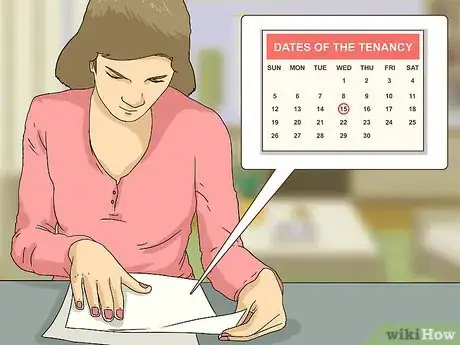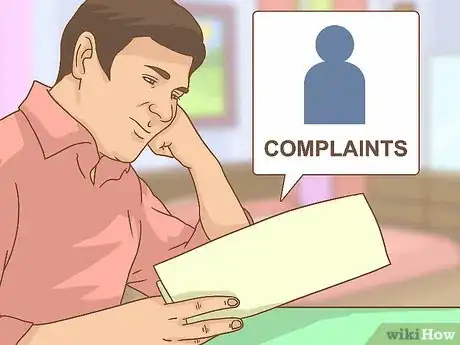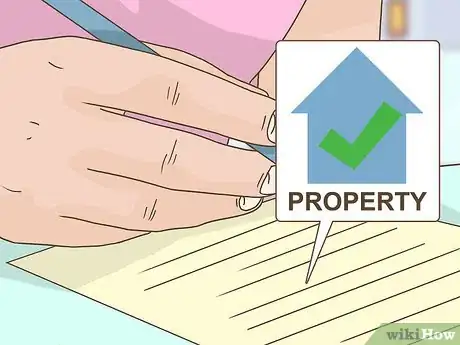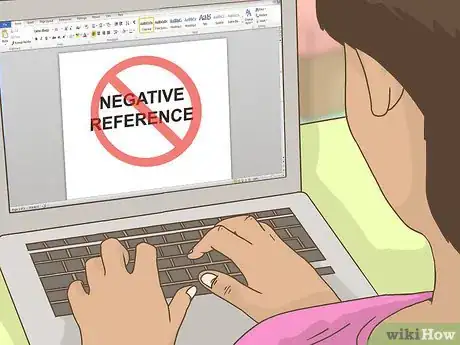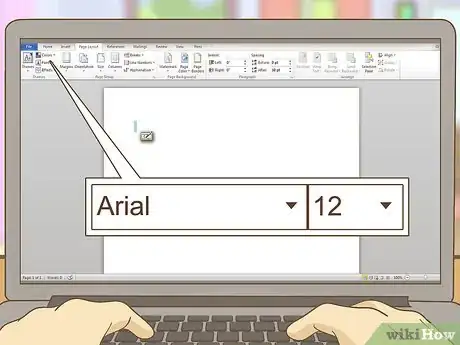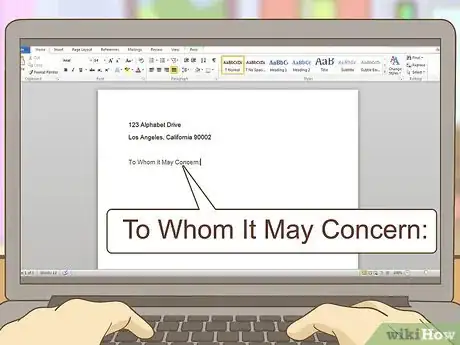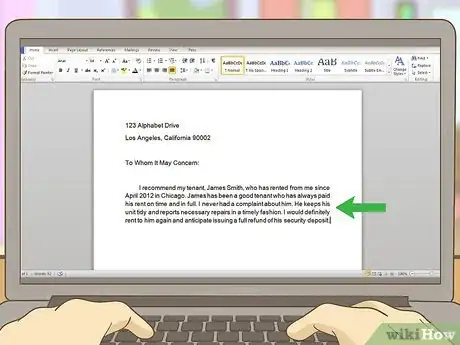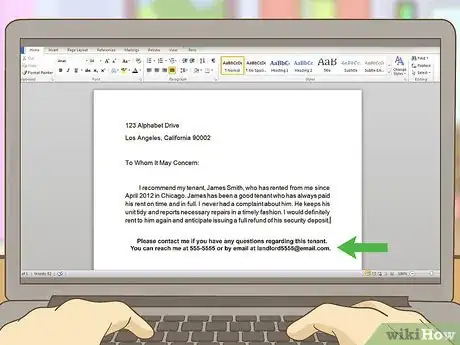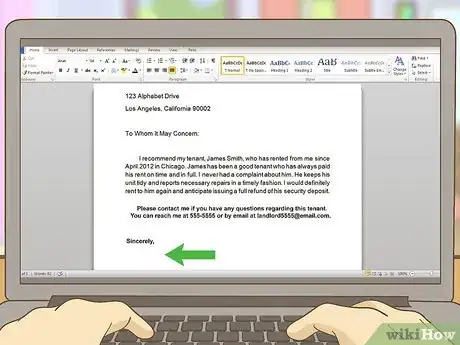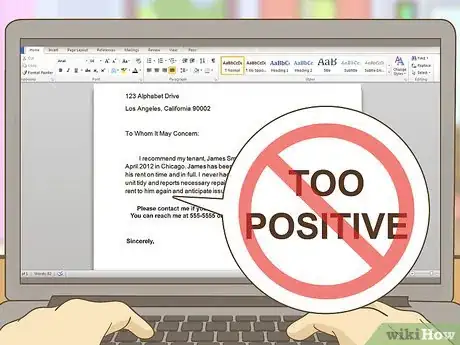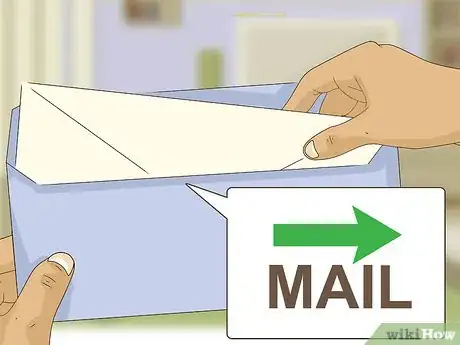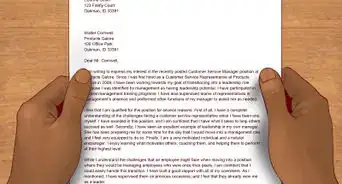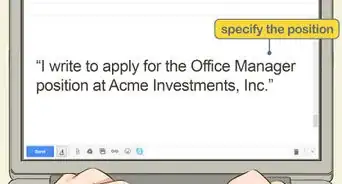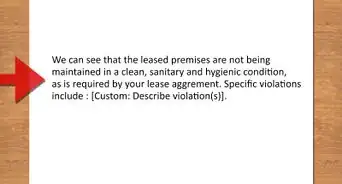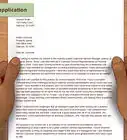This article was co-authored by Carla Toebe. Carla Toebe is a licensed Real Estate Broker in Richland, Washington. She has been an active real estate broker since 2005, and founded the real estate agency CT Realty LLC in 2013. She graduated from Washington State University with a BA in Business Administration and Management Information Systems.
This article has been viewed 351,692 times.
When a tenant decides to move, they might ask you for a reference letter. The letter does not need to be elaborate. Instead, you should explain whether the tenant was timely with rent payments, kept the property in good condition, and was respectful of others. If the tenant was bad, you should seriously consider not writing a reference letter. A negative letter could expose you to legal liability. More often in the rental industry you will respond to a rental request from a future landlord or screening company. In this case it's best to get a signed permission slip from the applicant giving you permission to release information about their rental history. For this type of request, it is best to just respond to the specific questions being asked and do not provide any more information than required.
Steps
Gathering Information
-
1Confirm the dates of the tenancy. A future landlord wants to know how long the person has been your tenant.[1] Go through your paperwork to find the dates. You should have a copy of the leases the person signed.
- If you don’t have any paperwork, look through your bank records. Check the months you have deposited rent into your account.
-
2Note if the tenant paid their rent on time. A future landlord also wants to know how stable the tenant is. Accordingly, check your records to see that they paid the rent on time and in full.[2]
- If not, write down how late they were with the rent payment. Did you have to pester them? Did you have to give them written notice that they were late?
Advertisement -
3Check if any complaints were filed. Your reference should also mention whether you received complaints about the tenant, especially from other tenants.[3] If there were complaints, note what they were about.
- Also think about how polite the tenant was when you spoke to them. Were they agreeable? Angry? Did they address the problem?
- Pay attention to complaints about pets. Many landlords are hesitant to rent to pet owners. Were there complaints about the tenant’s dog or other pet?
-
4Check the property. You should also note in your letter whether the tenant left the property in good condition. Was it clean? Did you need to make repairs? Did the tenant cause a pest infestation? Tell the tenant you want to check the property before writing your letter.
- So long as the tenant is still living with you, you must give them notice before entering the apartment. Check your state law for how much advance notice you must give.
-
5Refuse to write a negative reference. Writing a negative reference for a bad tenant invites headaches. For example, the tenant might be angry that the reference isn’t positive. Also, they may dispute the accuracy of your letter and claim the negative letter prevented them from getting a place.
Writing Your Reference
-
1Format the letter. Set up your letter as a standard business letter. If you have letterhead, you can use it when you print your letter. Otherwise, include your address at the top of the letter.
- Set your font to something most people can read. Times New Roman or Arial 12-14 point is acceptable.
-
2Include a salutation. You probably don’t know who the tenant will show your letter to. Accordingly, you should write “To Whom It May Concern” as a salutation. Put a colon after the salutation.[6]
-
3State the facts. Your letter doesn’t need to be long. If possible, you can write a single paragraph in which you describe the tenant based on the information you gathered. If you had problems with a tenant, you might need to use a second paragraph.
- For example, you can write: “I recommend my tenant, James Smith, who has rented from me since April 2012 in Chicago. James has been a good tenant who has always paid his rent on time and in full. I never had a complaint about him. He keeps his unit tidy and reports necessary repairs in a timely fashion. I would definitely rent to him again and anticipate issuing a full refund of his security deposit.”[7]
- If there is negative information to share, then revise the above paragraph. For example, you could write, “James has generally been a good tenant, but I did receive a noise complaint about his dog in June 2012. However, after talking with him, I didn’t have any other problems.”
-
4Ask the person to contact you with questions. You should let the future potential landlord know how to reach you. Give your phone number and email address if you have one.
- For example, you can write, “Please contact me if you have any questions regarding this tenant. You can reach me at 555-5555 or by email at landlord5555@email.com.”
-
5Close the letter. Insert “Sincerely,” and then leave about four lines of blank space. Type your name.[8] Remember to sign in the blank space using a blue or black ink pen.
-
6Avoid being too positive. If you praise a tenant to the skies, then future landlords might suspect you are trying to get rid of a problem tenant by making them sound too good to be true. Instead, remain factual and neutral in the language you choose.[9]
- Nevertheless, be honest. If you lie, then the future landlord might be able to sue you for misrepresentation.[10]
-
7Proofread your letter. Set the letter aside for a period of time and then look at it with fresh eyes.[11] You’ll want to clean up any mistakes, like missing words, typos, or grammatical errors.
- Read the letter out loud. This is a good way to catch mistakes.
-
8Mail the letter. The tenant might have you mail the letter directly to a future landlord. More likely, however, they will ask for the letter. Either way, make a copy of the letter for your records before sending it off.
- You can expect your tenant to read the letter one way or another. For example, if your tenant is denied a rent, they will probably ask why. The landlord might say, “Your landlord’s reference letter was negative.”
- For this reason, you might want to show them the letter if there is negative information. You can talk about it and give your tenant the option of not using your reference letter.
Expert Q&A
-
QuestionHow should I add a tenant to an existing rental agreement?
 Carla ToebeCarla Toebe is a licensed Real Estate Broker in Richland, Washington. She has been an active real estate broker since 2005, and founded the real estate agency CT Realty LLC in 2013. She graduated from Washington State University with a BA in Business Administration and Management Information Systems.
Carla ToebeCarla Toebe is a licensed Real Estate Broker in Richland, Washington. She has been an active real estate broker since 2005, and founded the real estate agency CT Realty LLC in 2013. She graduated from Washington State University with a BA in Business Administration and Management Information Systems.
Real Estate Broker Make sure to have the new tenant apply to live there, be approved and make an addendum that existing tenants and the landlord will sign. Be sure to have the new tenant sign the existing lease as well.
Make sure to have the new tenant apply to live there, be approved and make an addendum that existing tenants and the landlord will sign. Be sure to have the new tenant sign the existing lease as well.
References
- ↑ https://www.commercialtrust.co.uk/btl/landlord-advice/tenant-referencing/landlord-reference-letter/
- ↑ https://www.commercialtrust.co.uk/btl/landlord-advice/tenant-referencing/landlord-reference-letter/
- ↑ https://www.commercialtrust.co.uk/btl/landlord-advice/tenant-referencing/landlord-reference-letter/
- ↑ https://www.commercialtrust.co.uk/btl/landlord-advice/tenant-referencing/landlord-reference-letter/
- ↑ http://corporate.findlaw.com/business-operations/mum-s-the-word-landlord-liability-when-providing-a-reference-for.html
- ↑ https://www.docracy.com/3erq0nffss/sample-landlord-reference-letter-positive
- ↑ https://www.docracy.com/3erq0nffss/sample-landlord-reference-letter-positive
- ↑ https://www.docracy.com/3erq0nffss/sample-landlord-reference-letter-positive
- ↑ https://www.commercialtrust.co.uk/btl/landlord-advice/tenant-referencing/landlord-reference-letter/
